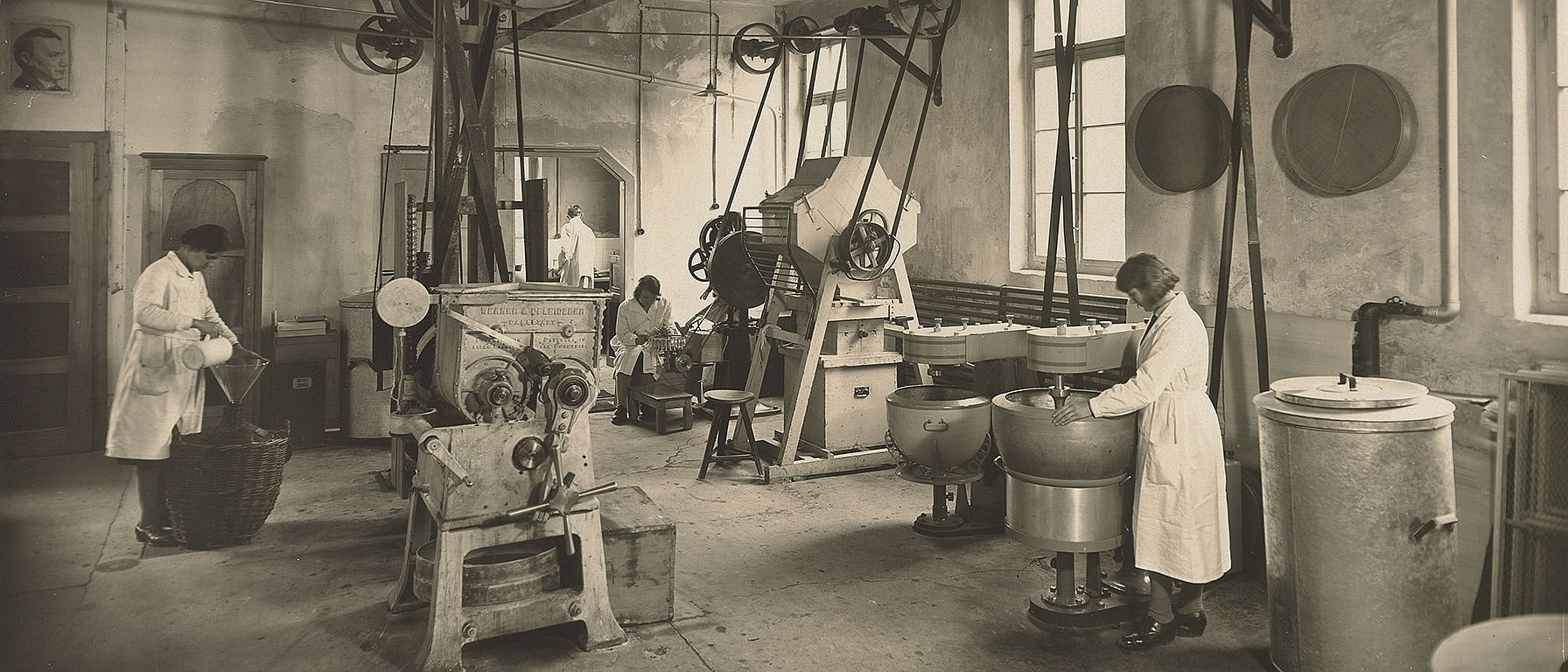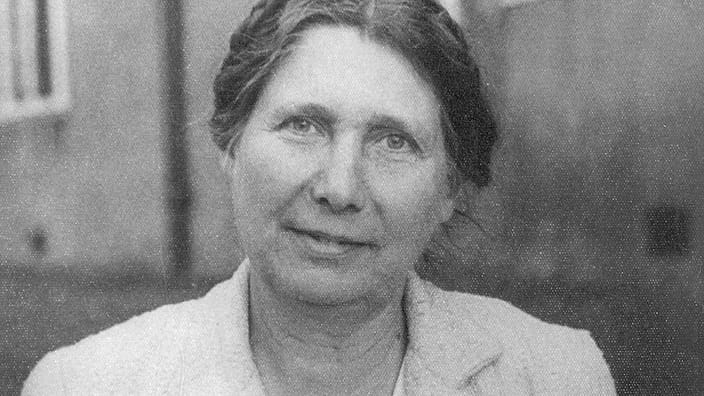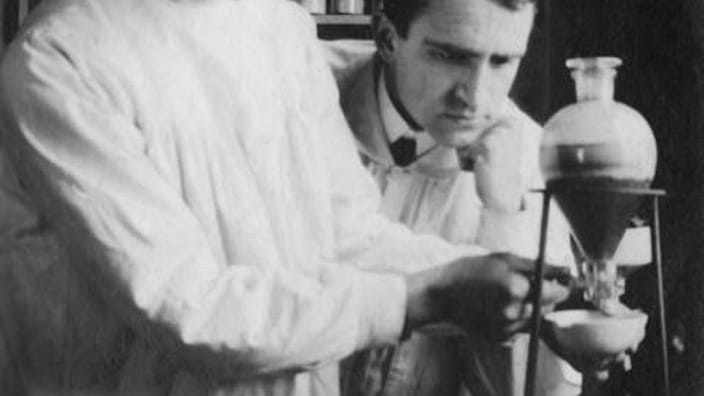Weleda's Founders and pioneers of anthroposophic medicines and skincare.
Weleda was founded by people who longed for a better future and struck out in new directions.
Rudolf Steiner
The spiritual and philosophical founder of Weleda.
Rudolf Joseph Lorenz Steiner (25/27 February 1861 – 30 March 1925) was born in modern-day Croatia, but moved with his parents to Austria when a baby. Receptive to ideas on the spiritual and physical worlds, he gained a doctorate in philosophy from the University of Rostock, before which he had already published extensively on literature and philosophy – his works included The Philosophy of Freedom and The Theory of Knowledge Implicit in Goethe's World-Conception.
At the beginning of the twentieth century he founded a spiritual movement, anthroposophy. It has roots in German idealist philosophy and theosophy, which encourages the individual to see his or her body, mind and spirit as intrinsically linked to our world - all part of one holistic system.
From the late 1910s onwards, Steiner started working with medical doctors and chemists to create a new approach to medicine. In 1921, the doctor Ita Wegman, the chemist Oskar Schmiedel and physicians and pharmacists gathered under Steiner's guidance to determine just how they might use this philosophy to care for patients’ needs.
They understood that a human body has a remarkable ability to heal itself, but that it also sometimes needs a little help, so they developed a personal approach to health-care using natural ingredients to support the body’s own healing impulse. With this belief and a profound depth of scientific and philosophical knowledge they founded Weleda.
Great influence on Weleda
The importance of Steiner and his wholly original thinking is pivotal for Weleda. Even though he held no executive posts, he and Dr Ita Wegman were part of the so-called Kontrollstelle, a comprehensive advisory group underpinning the company. He was also responsible for the company name and for the logo, which he designed himself.
Above all, Rudolf Steiner was most influential for Weleda’s intellectual and spiritual foundations. His was the vision of a new healing process, following it through from the anthropological prerequisites to concrete remedy and medicine production.
Dr Ita Wegman
A clear-sighted woman with a strong vision of reform in medical treatment.
Ita Wegman (22 February 1876 - 4 March 1943) was born in West Java, modern-day Indonesia, the eldest daughter of a Dutch colonial family. At the end of the nineteenth century she came to Europe and studied therapeutic gymnastics and massage.
Ita Wegman brought many qualities to Weleda and its associated endeavours. She was a person of extraordinary energy and assertiveness, with a great talent for putting theory into practice, and she was often the final arbiter concerning financial matters – she always managed to get the necessary funds when they were needed. She founded the clinic in Arlesheim and the Clinical-therapeutic Institute that later became Weleda.
On the medical side she was a close colleague of Rudolf Steiner and her impetus for the foundation of anthropsophic medicine and its new ideas for treatment and practice were indispensable to the company’s successful development.
In 1920 she purchased land in Arlesheim, where she opened her own clinic, the Klinisch-Therapeutisches Institut, or Clinical Therapeutic Institute, the next year. A number of other doctors joined the institute, which grew steadily over the next years as the first centre for anthroposophical medicine.
She then also founded a therapeutic home for mentally handicapped children, Haus Sonnenhof, in Arlesheim. Around the same time, she co-founded the principles of anthroposophical medicine and the company Weleda, with Rudolf Steiner and Oskar Schmiedel.
At around 1923, Rudolf Steiner asked Wegman to join the Executive Council of the newly reformed Anthroposophical Society at the Goetheanum in Dornach, Switzerland. She also became director of the medical section of the research centre at the Goetheanum.
Oskar Schmiedel
A self-assured man who initiated the production of anthroposophic pharmaceuticals and cosmetics.
Dr. Oskar Schmiedel (30 October 1887 - 27 December 1959) was a pharmacist, anthroposophist, therapist, Goethean scientist and theosophist. He studied chemistry at Munich University and then joined the Theosophical Society.
In 1907, after hearing a lecture by Rudolf Steiner, he became his personal pupil and in 1912 he founded the chemical-theosophic laboratory, where plant colours were researched in an anthroposphic way. He started his own laboratory in 1913, principally to produce cosmetic products.
From 1919, the intensive production of remedies started, first with the help of Dr. Ita Wegmann and later with the help of Dr. Ludwig Noll (1872 – 1930), together with whom he created a whole range of supplements.
In 1922 Schmiedel became responsible for the research and manufacturing department of Weleda and, in 1924, he became director of the whole company, an arrangement which lasted until his death in 1959.
Oskar Schmiedel is still known today as an exemplary pharmaceutical pioneer. It was he who founded the anthroposophic laboratory and started the production of cosmetic and pharmaceutical products. It was he, too, who asked Rudolf Steiner to hold a medical course for doctors – an action which more than any other started the ball of anthroposophic medicine rolling.







